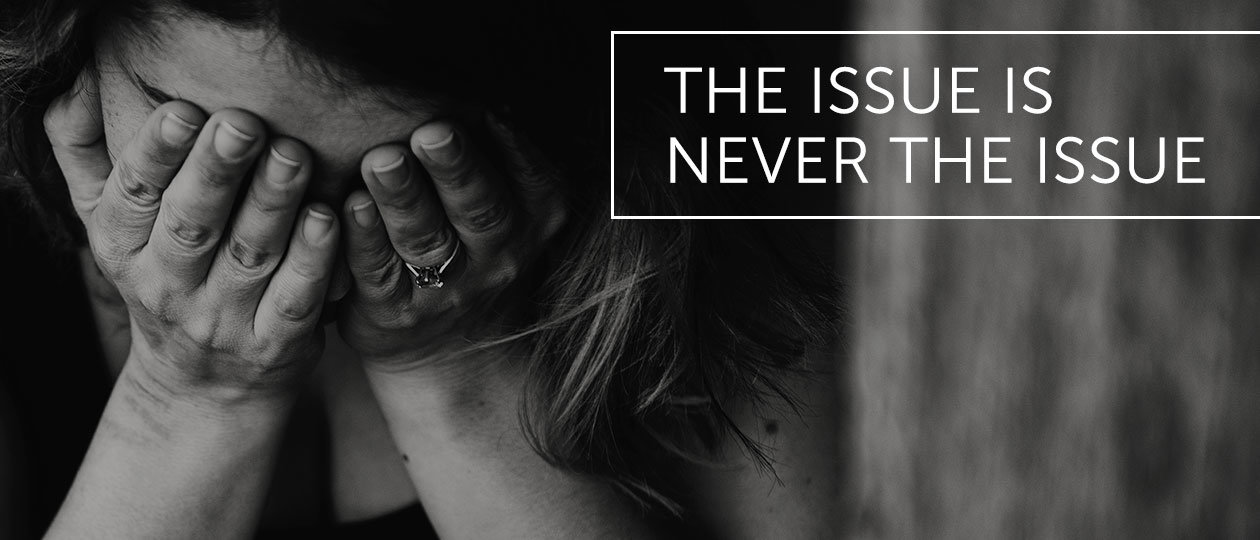The Issue Is Never the Issue
I was sitting in the first graduate-level psychology class I ever had. Without saying a word, the doctor went to the chalkboard and wrote, “The issue is never the issue!” He underline “never” three times and broke his chalk on the exclamation point. Then he whirled around and said, “my name is Professor Jones [not his real name] and if you don’t get this, you might as well leave now.”
He explained that every client has a presenting issue, meaning what they think their problem is. It’s the reason they’re there, the reason they’re willing to pay you $135 for fifty minutes (that was 25 years ago). While not completely true, that professor’s axiom would certainly be true the vast majority of the time. My guesstimate is that about 95 percent of the time, people think their problem is either a physical, external circumstance, or another person. They’re sure that if “this” would just change, everything would be okay. But incredulously, when it eventually does change, they’re still not okay. My job as a therapist was to help them escape that cycle, so that they don’t live their entire lives in it as most people do.
As my professor said, the problem is almost never the physical, external circumstance that people tend to blame. But if that’s true, why are we so sure those circumstances are responsible, why do we spend so much time and money trying to fix them? Because we have an innate need to know the reason behind the flat tires, the wrecks, and the fender-benders of our lives. But the reason is in the final frontier (sorry, Star Trek) of human existence: the human heart and unconscious. So what’s a boy to do?
I make something up! I rationalize and I manufacture a reason for the pain and the problem. Now, I may not know I’m making it up, and it probably sounds like the most logical reason. So I believe it, but deep in my heart, I almost always know there’s something else.
That something else is always a relationship. You may not know which relationship, it may not even be possible for you to know—but if we could follow that pipe underground with a flashlight, at the end, we would find a relationship. Usually, when you think of a relationship issue, you’d think of someone that hurt you—something like that. The truth is that the great majority of the time, the relevant relationship is with God or ourselves. It’s our inward state of goodness, success, safety, and love. One of my primary proofs for this is the brain and nervous system, which can either mandate your thoughts, actions, and beliefs, or allow you the ability to choose.
That determination is based on whether you are receiving a love or fear signal from your memories. Well, there is no love without relationships. And since fear is the absence of love, both love and fear are contingent on relationships. Until you address and resolve your relationship issues—which is what Trilogy is for—nothing else is likely to help very much. You’ll be stuck in that cycle you’re probably already familiar with. So how about being done with futility, with trying one similar treatment after another, expecting different results. I’ll echo what I heard on that first day of graduate school: if you don’t get this fixed, you’re probably wasting your time.



